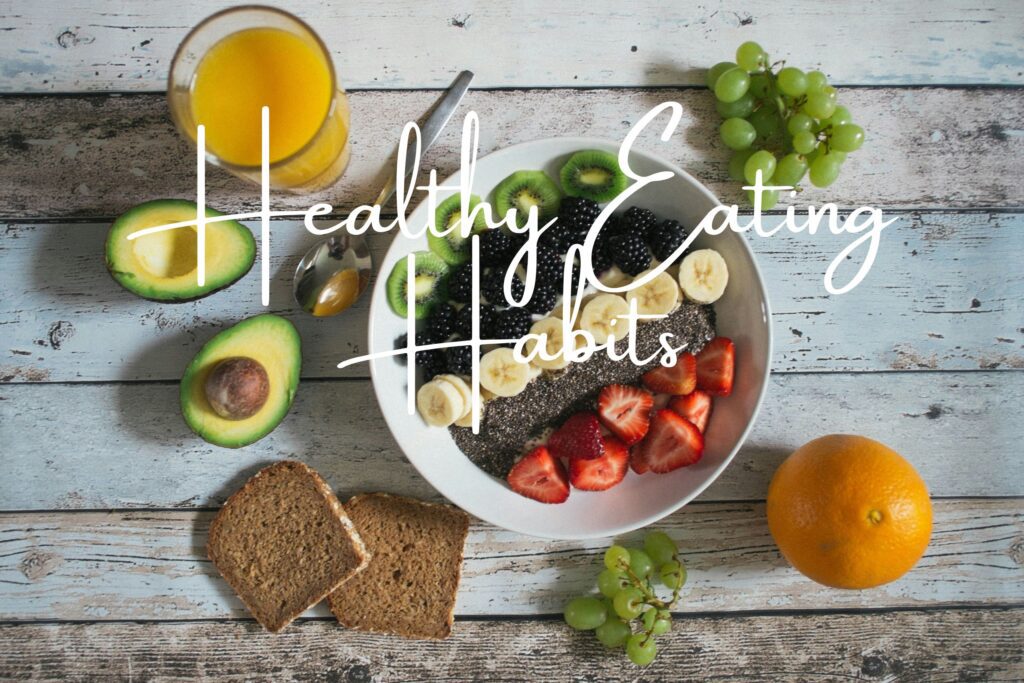We start aging from the moment we’re born. Our bodies undergo a series of changes over time that are influenced by various factors such as our environment, diet, and lifestyle.
What happens inside the body and how it happens is very complex but scientists are trying to understand what happens to our cells and molecules over time.
The effects of aging start very early in life. Initially, these changes are very subtle but become more apparent as we age. From declines in hearing and cognitive function to changes in bone density and fertility, aging touches every aspect of our being.
As we enter our later years, the risk of chronic diseases increases, and that’s when we realize that we should have been proactive in taking care of our health throughout our lives.
While we cannot stop the aging process completely, we can slow it down and positively impact health outcomes through diet, exercise, and a healthy lifestyle.
Regular exercising will help you maintain a healthy weight, keep your body strong, and improve your mood and overall well-being. A healthy, nutritious, and wholesome diet will support your health and vitality. Studies show that nutrition plays a very significant role in promoting healthy aging.
Regularly consuming a diet rich in fruits, vegetables, whole grains, lean proteins, and nuts has a lot of health benefits like reducing the risk of chronic diseases such as cancer and heart problems. Certain nutrients in these foods such as plant pigments, calcium, vitamin B, and flavonoids are very good for brain function and cardiovascular health.
Ultimately, you have the power to shape your own health. By making informed decisions about your diet, physical and mental health, and lifestyle, you can improve your overall well-being and add vitality to your years. It’s never too late to start a healthy lifestyle, embrace healthy eating habits, and start a journey towards better health and longevity.
But in this modern world, we generally overlook the importance of healthy habits that form the foundation of our well-being. Nutrition, exercise, sleep, stress management, all these habits play a crucial role in shaping our physical, mental, and emotional health.

Welcome to our Healthy Lifestyle Habit Series where we explore the basic principles of living a well-balanced and fulfilling life. In this inaugural post, we focus on one of the cornerstones of a healthy lifestyle, healthy eating habits.
We’ll understand the impact of our dietary choices on our health and well-being, and understand how adopting mindful eating practices can improve your quality of life.
Let’s get started!
Table of Contents
What Is Healthy Eating For Wellbeing And Why Is It So Important?
If you’ve ever played games like Mechanix in your childhood, you would have realized that it’s very hard to build a non-living object even with clear instructions. In this age of AI and supercomputers, even the best minds in this world have been able to build robots that can only do certain tasks and those too without much precision.
Now compare that to our human body, which is the most complex piece of engineering in the known universe. It is so sophisticated that it allows us to do almost everything with absolute precision.
Together as humans, we have built such complex infrastructures that are marvels of engineering, efficient vehicles that can even take us to the depths of the oceans and the heights of outer space, supercomputers that can do highly complex calculations and tasks in a matter of seconds, and much more.
So, this body is the pinnacle of engineering that enables us to do some extraordinary things. And the food we eat is what powers this machinery. It fuels our daily activities, supports our bodily functions, and secures our overall well-being.
The output, functioning, and longevity of this machinery depend on the type of fuel you put in it. If you nourish it with essential nutrients required for its optimal functioning, it will function with its maximum efficiency but if you deprive it of the required ingredients, it will break down sooner or later.
Healthy eating is about taking a balanced approach to your food choices, consuming wholesome and minimally processed foods that provide the entire spectrum of nutrients.
How Does Eating Healthy Affect Your Overall Well-Being?
Think about it, whatever food you eat becomes a part of your body. You eat a banana, it becomes you. You eat a pizza, it becomes you. So the kind of food you put in your body defines you.
It greatly impacts your physical, mental, and emotional health. Regularly consuming a wholesome and balanced diet mitigates the risk of chronic diseases, heart problems, diabetes, and certain cancers. It promotes longevity and vitality.
Studies also show that a nutrient-rich diet can improve your mood, cognitive abilities, and overall mental health.
A poor diet on the other hand that contains a lot of processed foods, sugar, and fried foods can increase the risk of mental health issues like depression and anxiety and can lead to a decline in cognitive abilities.
If you want to learn more about how your food impacts your body, we encourage you to read our blog on this topic.
What Are Healthy Eating Habits?
Healthy eating habits are the foundation for a balanced, nutrient-rich diet that promotes optimal health and well-being. But what exactly are healthy eating habits, and how do they differ from simply following a diet plan?
The essence of healthy eating habits lies in cultivating a positive and sustainable relationship with the food you consume daily. It’s not about following strict rules or restrictions but rather adopting a flexible and intuitive approach to nourishing your body.
The goal of cultivating healthy eating habits is not to make you look thin or deprive you of your favorite foods but rather to take a balanced approach and consume food that makes you feel good and energetic and improves your mood and health at the same time.
5 Healthy Eating Habits For Nutrition And Overall Well-Being
Let’s dive into the key principles that guide you toward making nutritious choices in your daily life.
1. Consume A Well-Balanced Diet
The first healthy healthy eating is a no-brainer and we’ve been briefly talking about it since the beginning of this blog. A well-balanced and wholesome meal is the foundation of healthy eating habits. It’s all about mixing up different kinds of nutritious foods to give your body the vitamins, minerals, and energy it needs to work well.
When we say a balanced meal, it means including components from all the main food groups, like fresh fruits and veggies, whole grains, lean proteins, and healthy fats.
Fruits and vegetables are packed with vitamins, minerals, dietary fiber, and antioxidants. They provide essential nutrients that support immune function, digestion, heart, and overall health. Adding lots of colorful fruits and veggies to your meals not only makes them taste better but also gives you a wide range of important nutrients.
The role of protein is to build and repair muscle tissues. It supports muscle growth and maintains a healthy immune system.
Fibers play a vital role in your digestive health. They regulate your blood sugar level, maintain a healthy heart, improve bowel regularity, and lower the risk of chronic diseases such as diabetes, heart disease, and certain types of cancer.
Healthy fats are very important for your brain health, hormone balance, and nutrient absorption. They support cognitive function, improve cholesterol levels, and reduce inflammation in the body.
Our blog on how the food you eat impacts your body has all the details you would need on how to create a well-balanced diet.
2. Mindful Eating
If you want to learn about mindfulness in detail, we have written an entire series on it.
Mindfulness in the aspect of eating is about being fully present and attentive during your meals. It enables you to have a deeper connection with your food and your body. Mindful eating is about being aware of your hunger and fullness cues.
It’s about enjoying each bit and making intentional choices about what and how much you eat. If you’re mindful about the food you eat, you become more aware of the signals and sensations your body sends you. You pay attention to the feelings of hunger and satiety, you eat when you’re hungry and you stop when you’re full.
Mindful eating has two main aspects.
Portion Control
A crucial aspect of mindful and healthy eating that often gets overlooked is portion control. It is about being mindful of the food you’re putting on your plate and your mouth. It’s not about restricting yourself or counting calories, but rather about tuning in to your body’s signals and eating until you’re satisfied, not stuffed.
Moderation
Another aspect of mindful eating that is related to portion control is moderation. Moderation is about consuming a variety of foods in appropriate portions without overdoing it. It will allow you to enjoy a wide range of foods that would include both, nutrient-rich whole foods and your favorite treats.
Mindful eating and moderation don’t mean you have to give up your not-so-healthy favorite foods or feel guilty about eating them, but about enjoying them mindfully and in moderation so they don’t harm your overall health.
To sum up, here are a few things you need to keep in mind to practice mindful eating.
- Instead of relying on external signals like finishing up whatever is there on your plate, rely on your body’s signals of hunger and satiety. Eat when you’re hungry and stop when you’re full.
- Rather than filling your plate to the brim and then struggling to finish it, control your portion size to avoid eating mindlessly. Use smaller plates and bowls and refill them if required.
- Consume a well-balanced nutrient-rich diet daily but allow yourself to enjoy your favorite foods occasionally, without guilt. But do it in moderation.
- Eat slowly, chew your food nicely, and enjoy the flavors and textures of your food. Enjoy the whole experience of eating.
- Remove all the distractions while eating like TV, phone, or computer. Be fully present in the moment.
3. Timely Detox
One very important thing for keeping healthy in today’s world is detoxing your body timely. The idea behind detoxing is to rid the body of toxins and impurities accumulated from environmental pollutants, processed foods, and other sources.
While the body has its own natural detoxification processes, you can proactively take some additional measures to support these processes and improve your health.
One of the most common methods of detoxifying is through consuming some foods and beverages. There are some fruits and vegetables you can consume that contain fiber and antioxidants such as leafy greens, berries, and cruciferous vegetables.
Some drinks you can consume are ash gourd juice and herbal teas, or you can make your own detoxifying drink by adding lemon and other citrus fruits. We encourage you to read our blog which is on a related topic – 11 Superfoods That Boost Your Immune System and Improve Your Overall Health.
Ash gourd juice mixed with a lemon and a little bit of honey is something that both of us consume first thing in the morning. We’ve been consuming it regularly for the past 5 years now and we can’t explain how beneficial it has been for our digestive system and overall health.
Another method of detoxification is through fasting. In the Hindu culture, fasting has been used as a method of purifying the mind and body for thousands of years. It is a simple practice where you abstain yourself from consuming food for a certain period of time.
Ideally, you should only consume drinks or juices that don’t have any energy or have very minimal energy in them. By doing this, your digestive system gets a break and that is when the body detoxifies and repairs itself.
There are so many benefits to fasting like weight management, improving insulin sensitivity, cellular repair and autophagy, improved brain and heart health, etc.
The important thing to understand is that these are just additional things you can do to support your body’s natural detoxification process, which is very strong and efficient. The most important thing is to consume a healthy diet and lead a healthy lifestyle free from stress and bad habits.
4. Proper Diet Schedule
The next important habit on the list is to have a proper diet schedule which is about ensuring that you consume all your meals without skipping – breakfast, lunch, and dinner. Among these meals, breakfast is the most important meal of the day, and for good reason because it kickstarts your metabolism and provides the necessary energy to fuel your day.
Breakfast should also be the heaviest meal of the day and it should include all the macronutrients – protein, carbohydrates, fibers, and healthy fats.
As the day progresses, your aim should be to have balanced meals for lunch and dinner as well. Each meal of the day should include a mix of protein, carbohydrates, fats, and fibers. Also, make sure you consume seasonal fruits and vegetables so you get the entire spectrum of vitamins, minerals, and antioxidants.
A lot of people have the habit of skipping breakfast or having a very light breakfast, a moderate lunch, and a heavy dinner. A very bad habit for your health and the opposite of an ideal schedule.
Your breakfast should be heavy and consumed within an hour or so of waking up to replenish the energy stores after fasting overnight. Lunch should be moderate and around midday and dinner, while still important, should be lighter and consumed at least a few hours before bedtime so your body has enough time to digest it.
5. Avoid Processed and Sugary Foods
Processed and fast foods – one of the main culprits of the health problems we’re facing today. If you think about it, these foods are part of our daily diet in one form or the other. Processed foods are very high in refined or simple carbohydrates, added sugars, unhealthy fats, and artificial additives.
In the long term, they have very negative effects on our overall health and can lead to various physical and mental health issues.
The added sugars hidden in processed foods are the primary culprits and can wreak havoc on our overall health when consumed in excess. It leads to a sudden spike and crash in the blood sugar levels which leads to inflammation in the body and increases the risk of obesity, type 2 diabetes, and various mental health problems.
Processed foods also contain unhealthy fats like trans fats and hydrogenated oils which increase the LDL cholesterol responsible for heart problems. They are mainly found in fried foods, baked goods, and packaged snacks.
Processed foods are also high in sodium. Excessive sodium in the body leads to health problems like high blood pressure, stroke, and heart disease. Sodium as a preservative and flavor enhancer is used in foods like canned soups, sauces, and packaged snacks.
Whole foods on the other hand, like fruits, vegetables, whole grains, lean proteins, and healthy fats are rich in nutrients that support and enhance your overall well-being. They are naturally low in added sugars, unhealthy fats, and sodium, and are rich in vitamins, minerals, antioxidants, and fiber.
So, focus on consuming whole and minimally processed foods and try to limit your intake of processed and sugary foods.
Wrapping up – Healthy Habits for Nutrition and Overall Well-Being
The choices we make today shape our tomorrows. Every decision, whether small or big, has the potential to make way for a future filled with vitality and well-being.
How we spend our lives and how we age is entirely in our hands. A healthy lifestyle and a mindful approach to life will help you age like a fine wine, but the journey is a continuous one and it is guided by the choices we make every day.
Also, when you live a lifestyle that prioritizes your mind, body, and soul, you lay the foundation for becoming successful and having a fulfilling and vibrant existence. Every positive change you make contributes to a brighter future, enriching your lives in ways both seen and unseen.
Every human being is capable of doing great things, and having a healthy mind, body, and soul serves as a cornerstone for realizing our aspirations and achieving our goals.
The purpose of this blog series on “Healthy Lifestyle Habits” is to help you cultivate habits that promote healthy aging, support your journey toward becoming your best self, and manifest your dream life.
Hopefully, this first blog of the series gave you some insight into eating habits that will improve your health over time. By making mindful choices about the foods you eat and embracing healthy eating habits, you take ownership of your health and enhance your quality of life.
As we continue on this journey together, we invite you to join us in exploring further habits and strategies for leading a balanced, healthy, and fulfilling life. Namaste!







Leave a Reply